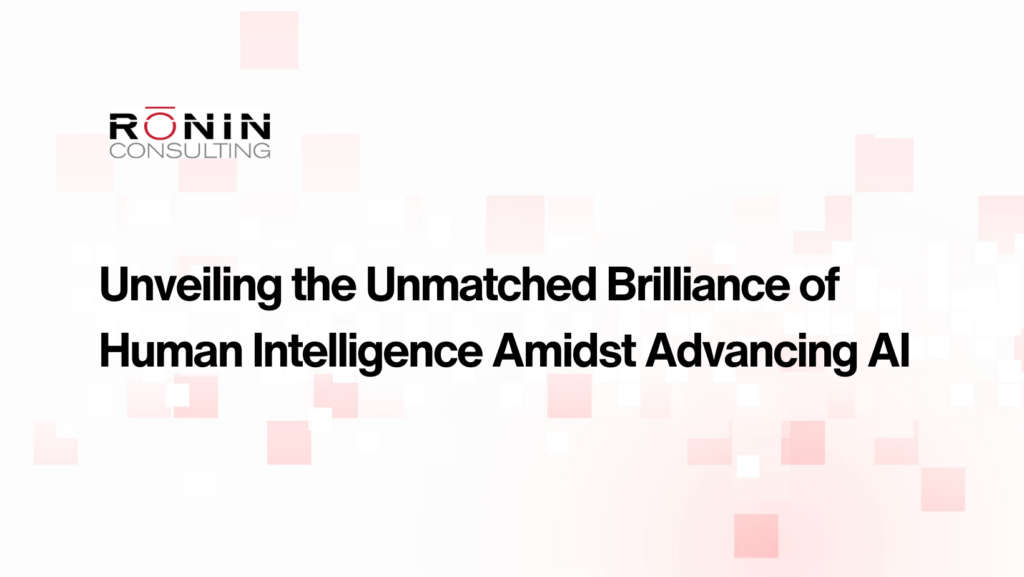
In the rapidly evolving landscape of advancing AI, where algorithms and language models dominate conversations, the enduring supremacy of the human brain remains an undisputed marvel. While we are inundated with the potential use cases of AI systems, we must not forget the profound capabilities that set human intelligence apart from even the most sophisticated AI models.
Creativity: A Symphony of Imagination
At the heart of human creativity lies an irreplaceable spark. While AI models can simulate and generate outputs, our organic and intricate ability to weave together unrelated concepts, birth novel ideas, and express emotions through art, music, and literature stands as a testament to the unique ingenuity of the human psyche. Humans have not dominated just because they are apex predators. Humans have an innate ability to express advanced cognition and the ability to adapt to new and changing environments.
Emotional Intelligence: Beyond Binary Processing
Understanding emotions, navigating intricate social dynamics, and demonstrating empathy are intrinsic to human intelligence. This type of processing has played a significant role in human survival and evolution, contributing to the functioning and growth of human societies.
While proficient in recognizing patterns, AI models fail to comprehend the nuanced complexities of human emotions.
Genuine understanding of humor, sarcasm, and adept navigation of social intricacies are hallmarks of the human experience. With so much of human communication skills relying on non-verbal tells, AI has yet to catch up. Currently, AI lacks the basic human experience and emotional comprehension essential for understanding body language cues.
Adaptability: A Dynamic Learning Symphony
The human brain is a dynamic learning machine. It constantly evolves and adapts to new information and changing circumstances. While AI models excel in specific tasks, they lack the holistic adaptability inherent in the human mind. Researchers have studied the variances between a computer’s processing and the speed and efficiency of the human brain, and they are definitely not on the same playing field.
Computer tasks are performed as a step in a series, while the human brain uses both serial steps and parallel processing. This parallel processing allows the brain to reference and learn from diverse experiences, draw connections across disciplines, and apply knowledge in various contexts remains unparalleled. With AI, this process must be created, inputted, and followed in a specific series of events to achieve.
Common Sense: The Silent Wisdom
Common sense involves practical judgment based on experience and an innate understanding of the world. While we might know someone who “lacks common sense,” humans are born with the skills to develop and grow this attribute through learning, observation, and adapting to the nuances of life.
For example, it’s common sense that you would not put your hand in a fire, lest you get burned. However, a child would only know this through experience or if somebody told them. AI models can not experience the growth of common sense as humans do. AI models frequently struggle in practical situations because they lack the inherent common sense pre-wired into human beings.
Processing Speed: The Human Advantage
One of the remarkable facets of human intelligence is its efficiency in processing information from all five senses. For example, the retina transmits visual information to the brain at about 10 million bits per second. The auditory system processes sound at a speed of up to 20,000 bits per second. These rapid processing speeds contribute to our real-time perception and interaction with the world, showcasing the unmatched capabilities of the human sensory system.
In comparison, AI often fails to replicate the rapid and simultaneous information processing inherent in human vision, hearing, touch, taste, and smell. The efficiency of human sensory systems remains a distinctive advantage, enabling us to navigate and comprehend our surroundings with unparalleled speed and precision.
AI Hardware Realities: Dispelling the Singularity Myth
While AI has made substantial progress, achieving a level comparable to the human brain requires incredible power and hardware advancements. The human brain operates on an energy budget of about 20 watts, which is incredibly energy efficient. Compare that to a typical desktop computer, which draws around 175 watts, and a consumer-level machine-learning setup, which draws about 900 watts, and you can already see the incredible power disparity.
The concept of the AI “Singularity,” often envisioned as a hypothetical point where AI surpasses human intelligence, faces significant challenges due to these hardware realities. Achieving human-level cognitive abilities in AI would demand unprecedented computational power and energy efficiency on par with the human brain. Currently, the road to Singularity involves addressing substantial hardware gaps and redefining the energy efficiency of AI systems.
Conclusion: Advancing AI Should Not Overshadow The Human Mind
As we witness the wonders of artificial intelligence, we must not lose sight of a critical point: AI is a tool crafted by the genius of the human mind. In a world shaped by technology, let us celebrate the irreplaceable brilliance of the human mind. Our brains, with their unparalleled creativity, emotional intelligence, adaptability, common sense, and power, stand as a testament to the extraordinary nature of human intelligence.





